
A version of this story appeared in CNN’s What Matters newsletter. To get it in your inbox, sign up for free here.
CNN
—
President Joe Biden’s promise for the US to “stand with Israel” continues a special relationship that dates back to 1948, when President Harry Truman became the first world leader to recognize the Jewish state, moments after its creation.
There’s now a kibbutz named after Truman in Israel, and the US provides billions in military support to Israel each year.
Israel has played an outsized role in US policy, and not just because most recent presidents have tried to play the role of peace maker between Israel and Palestinians and move toward a two-state solution.
I talked to three presidential historians about the US and its relationship with Israel. Douglas Brinkley is CNN’s presidential historian and a professor at Rice University, Julian Zelizer is a CNN contributor and a professor at Princeton University and Mark Updegrove is president and CEO of the LBJ Foundation. They each gave me some perspective on the US relationship with Israel.
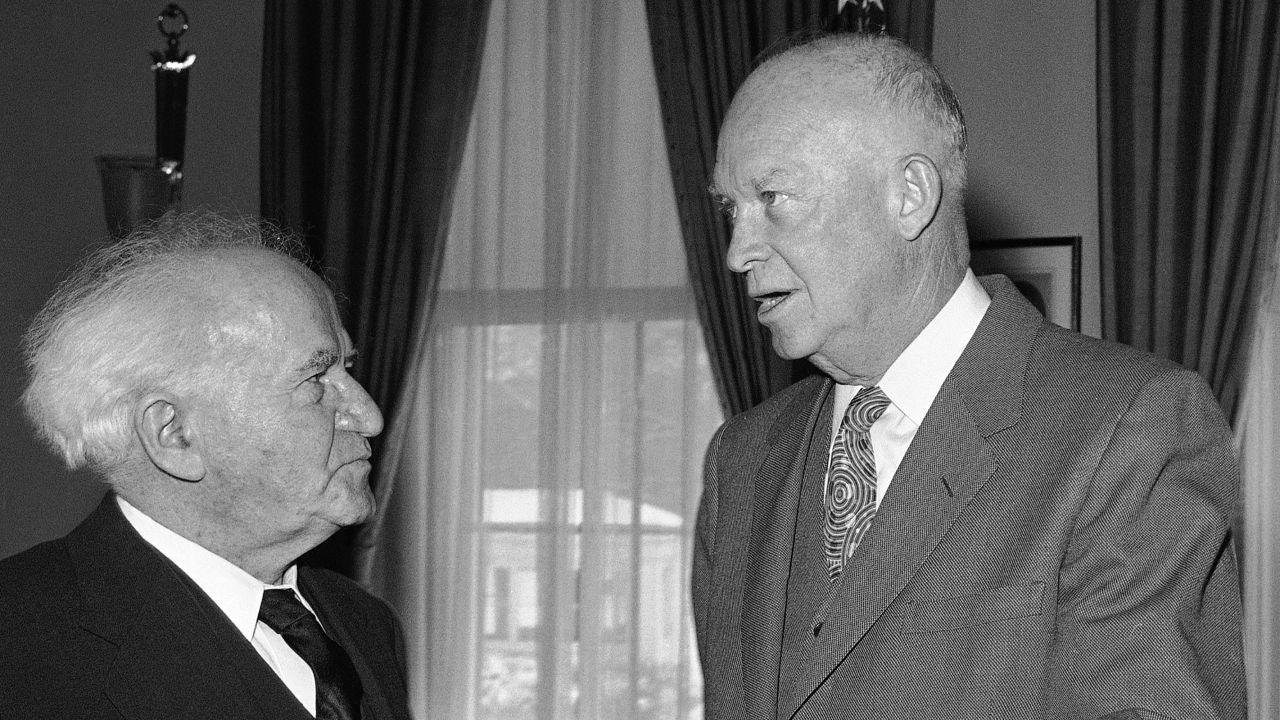
Along with France and the United Kingdom, Israel attacked Egypt in 1956 in an attempt to seize the Suez Canal and overthrow Egyptian President Gamal Abdel Nasser. Eisenhower pressured the countries to remove their troops – which they eventually did.
Kennedy engaged in a quiet pressure campaign to let US inspectors into its nuclear sites and halt an Israeli nuclear program. Israel is thought to have developed nuclear weapons in the 1960s, although it has never formally acknowledged them.
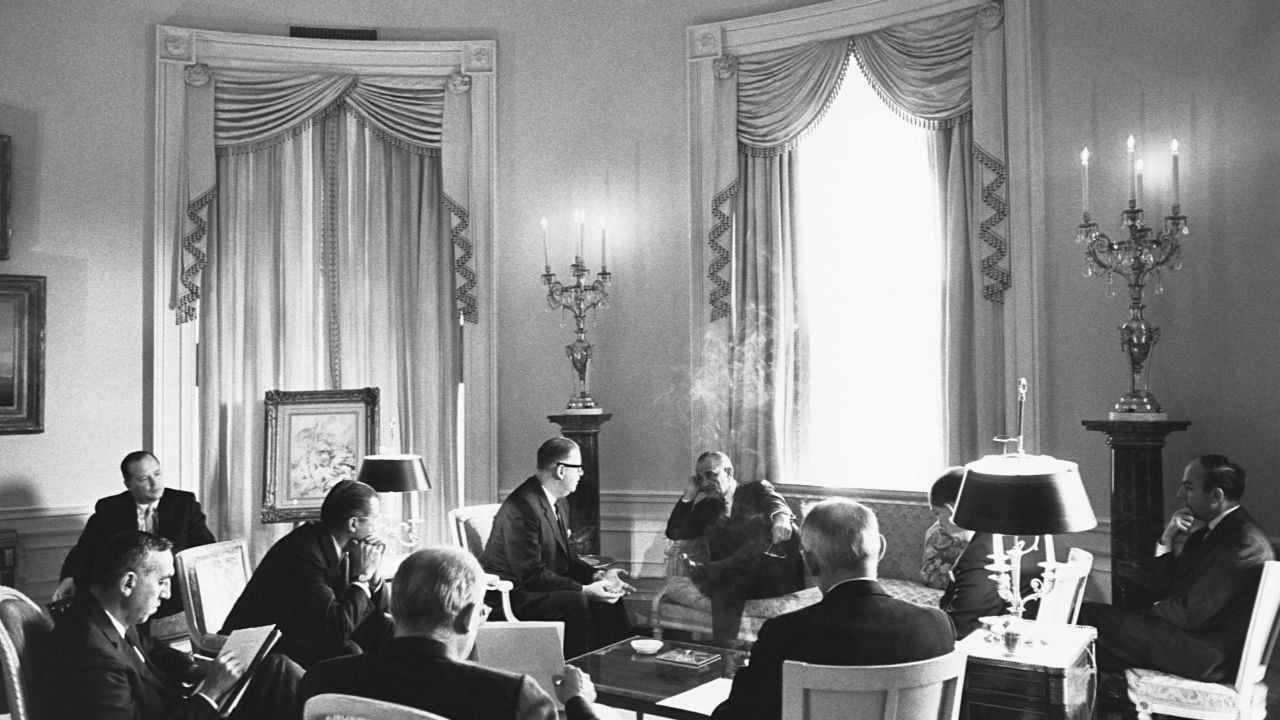
Johnson helped supply Israel in the years preceding the Six-Day War, in which Israel seized land from its neighbors. Egypt, as a result, closed the Suez Canal for years. Johnson agreed to sell some military equipment to the Israelis which was a shift in US policy at the time.
“This was a very much a product of Cold War tension,” Updegrove told me. “I think there was a great concern that that would escalate beyond Israel, Egypt and Syria to being a much larger battle.”
The Six-Day War marked the first official use of a special hotline between Washington and Moscow. The teletype machines were installed to ease tensions between the nuclear superpowers after the Cuban Missile Crisis. The Soviets initiated contact, and Johnson told them not to be alarmed by US military activity in the Mediterranean.
President Richard Nixon airlifted supplies to Israel and engaged in ‘shuttle diplomacy’
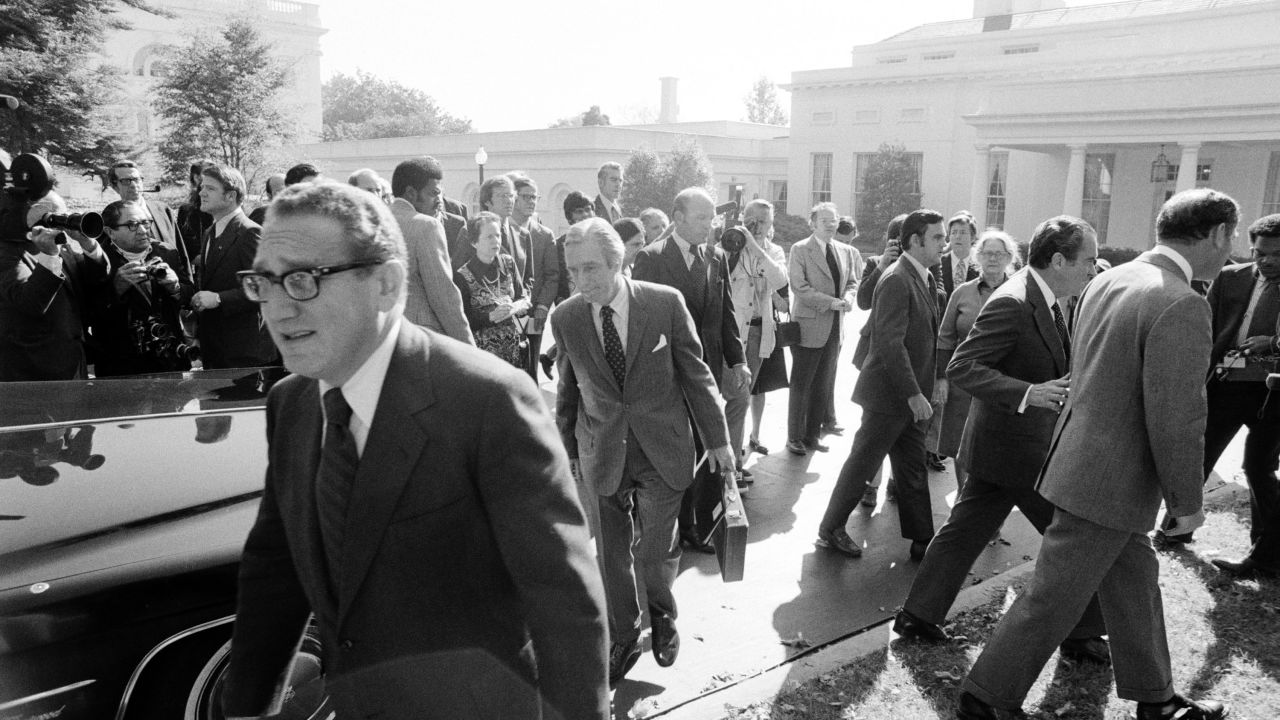
Nixon ultimately supported Israel during the Yom Kippur War of 1973, a key moment that may have saved the country.
“Most historians of that region think that the US munitions support was essential to Israel’s survival at that point,” Zelizer said.
Nixon’s secretary of state, Henry Kissinger, also engaged in so-called “shuttle diplomacy,” engineering an end to the war and ultimately reopening the Suez Canal under President Gerald Ford.
Biden had his initial firsthand encounter with Israel and the Middle East at this point, as a young senator, when he visited Egypt and Israel before the 1973 war. He has told versions of the story many times, always listing it as a pivotal moment for him.
“He did damage to his own presidency,” Brinkley told me. “Because the Arab nations created the famous Arab Oil Boycott and American gas prices spiked up. Due to Nixon’s support of Israel, it created an energy crisis in America.”
President Jimmy Carter brokered peace between Egypt and Israel
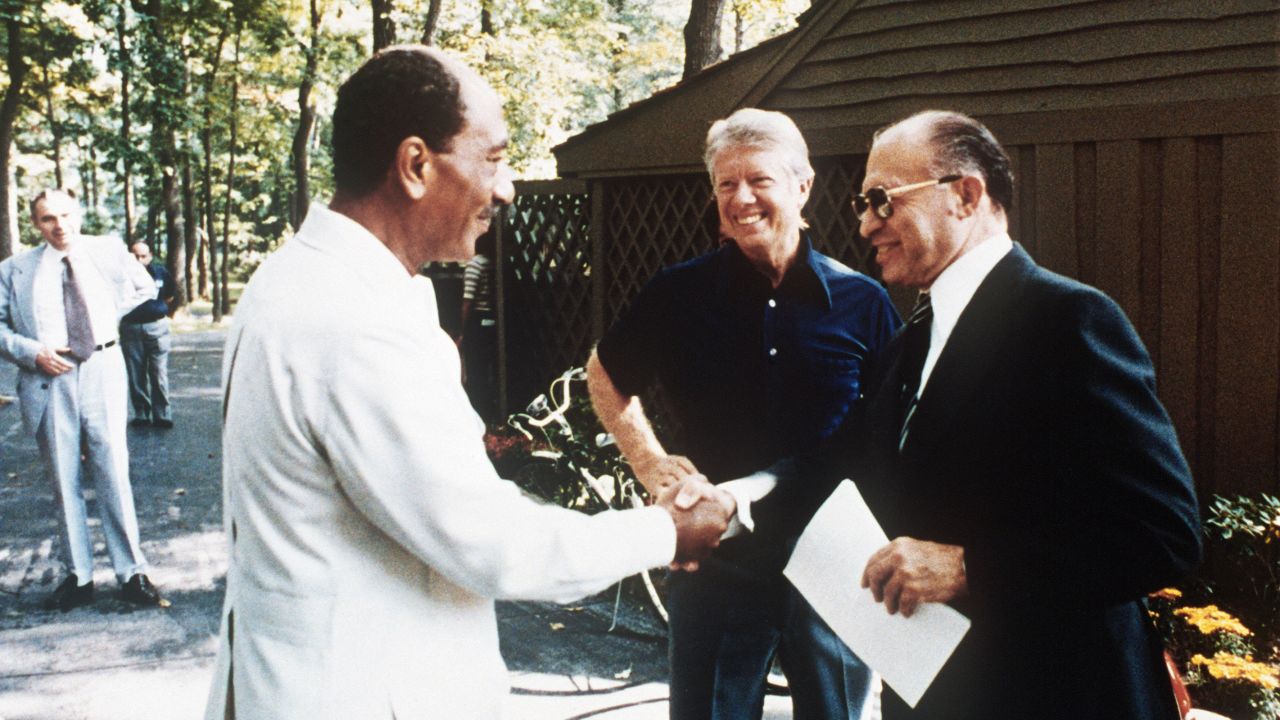
Carter brought Israeli Prime Minister Menachem Begin and Egyptian President Anwar Sadat together for the Camp David Accords, which created a lasting peace between Israel and Egypt, its Arab neighbor to the South.
Today, Israel enforces its borders on the Gaza Strip, but so does Egypt. That more than two million Palestinians live in the 140 square-mile strip without the ability to easily leave is why it is today frequently referred to as the biggest open-air prison on earth.
If securing peace was between Israel and Egypt was Carter’s triumph, his failure was not securing the release of American hostages held in Iran. So there may be some irony now that Biden is being targeted by Republican presidential candidates as bearing responsibility for the current war in Israel because he bought the release of five US prisoners held in Iran by agreeing to unfreeze $6 billion in Iranian funds held by South Korea. The Iran hostage saga during the Carter presidency captivated the American public for more than a year.
At the moment Sadat was assassinated in 1981 Carter knew his work was incomplete.
“He realized that Sadat had really paid, given his life for Camp David,” Brinkley said, adding that Carter kept a photo of Sadat in his wallet. “And so, Carter, as ex-president, really went full bore into trying to create a Palestinian homeland.”
That kind of activism for Palestinians would be welcome on the left wing of today’s Democratic party.
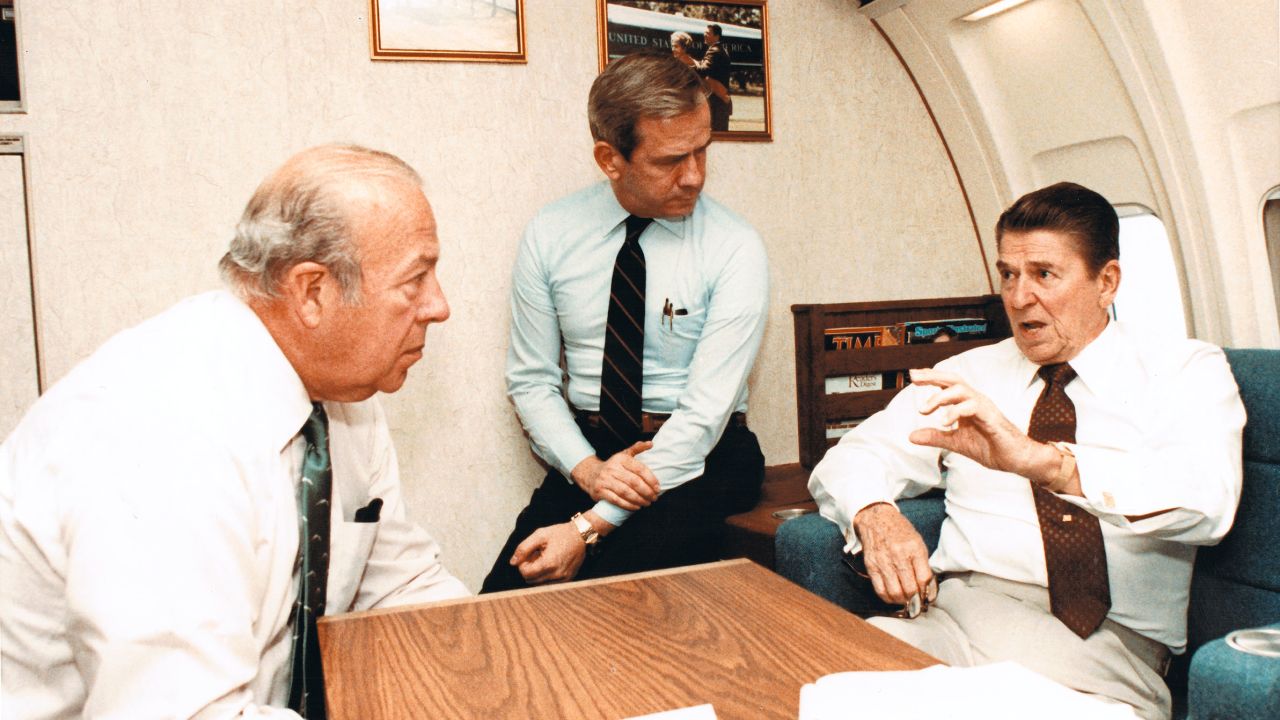
Ronald Reagan emphasized closer ties with Israel, a path that contributed to tension for US personnel in the region. US Marines were sent to Lebanon as part of a peacekeeping force after Israel invaded to pursue members of the Palestine Liberation Organization. The US Embassy and the US Marine Barracks were both bombed in Beirut, Lebanon, in 1983.
Hezbollah, the terrorist group with ties to Iran, then in its infancy, was found liable for the barracks attack, which killed 241 US servicemembers. US courts ruled that families of victims of the bombing should get $1.75 billion in Iranian funds that were held in a New York Citibank account.
The 1980s scheme to sell missiles to Iran in exchange for the release of American hostages in Lebanon is a consequential moment because it nearly brought down Reagan’s presidency.
What many people may have forgotten about the affair is that Israel operated as the middleman. The larger scandal was that Reagan administration officials then used proceeds from the sale of arms to fund anti-communist rebels in Nicaragua. In his 1990 memoir, Reagan said Israel instigated the hostage trade operation.
“It’s not all a linear kind of history,” Zelizer said. “But I think all of this has consequences on different elements of policy in the region.”
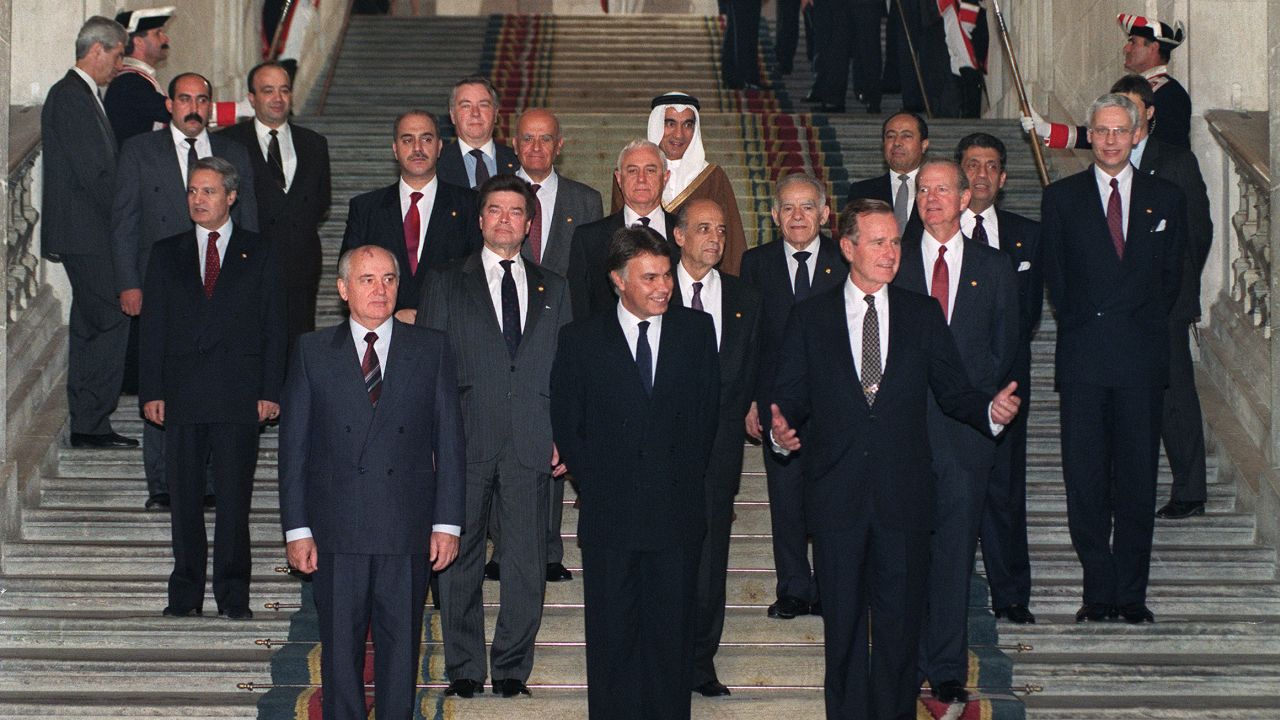
President George H.W. Bush tried to ensure US funds would not be used for West Bank settlements, causing some tension with Israel. He also tried to bring Israelis together with other nations to begin a Middle East Peace Process in Madrid, which included Palestinians, who were recognized as members of the Jordanian entourage. It was separate talks, not facilitated by the US, that yielded a normalization of relations between Israel and neighboring Jordan and the Oslo Accords, between Israel and the Palestine Liberation Organization.
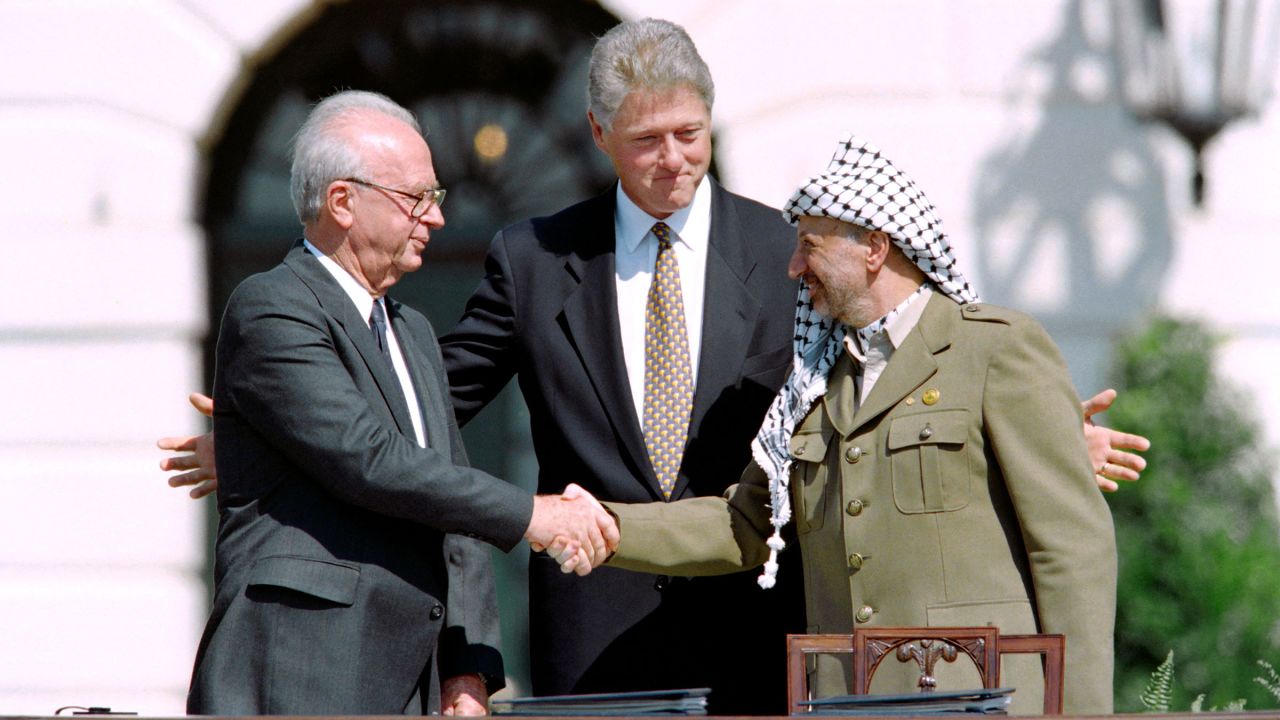
Clinton came closest to brokering peace between Israel and Palestinians. Drafting on the Oslo Accords in 1993, Clinton stood behind an historic handshake between then-Palestinian leader Yasser Arafat and Israeli Prime Minister Yitzahk Rabin. The Middle East leaders, along with Israeli Prime Minister Shimon Peres, were awarded the Nobel Peace Prize. But their agreement, which set up the Palestinian Authority as a nominal government for Palestinians, left the issue of Jerusalem undecided and did not lead to a lasting peace. Rabin was later assassinated by a far-right Israeli extremist. A follow-up effort between Clinton, Arafat and Israeli Prime Minister Ehud Barak, convened at Camp David, failed to produce an agreement.
“After 9/11 There’s a big shift,” Zelizer said. “I think that’s when you start to see a diminished standing for a Palestinian-Israeli peace agreement as a priority. The focus is counterterrorism for George W. Bush.”
At the outset of the Bush administration, Palestinians rose up against Israel in what’s now called the Second Intifada. At the time, Israel was embracing right wing Prime Minister Ariel Sharon, who encouraged more Israeli settlements in the West Bank and East Jerusalem. The international community, including the US, has long considered the settlements to violate the Geneva Convention, which forbids an occupying power from transferring its own citizens into occupied territory.
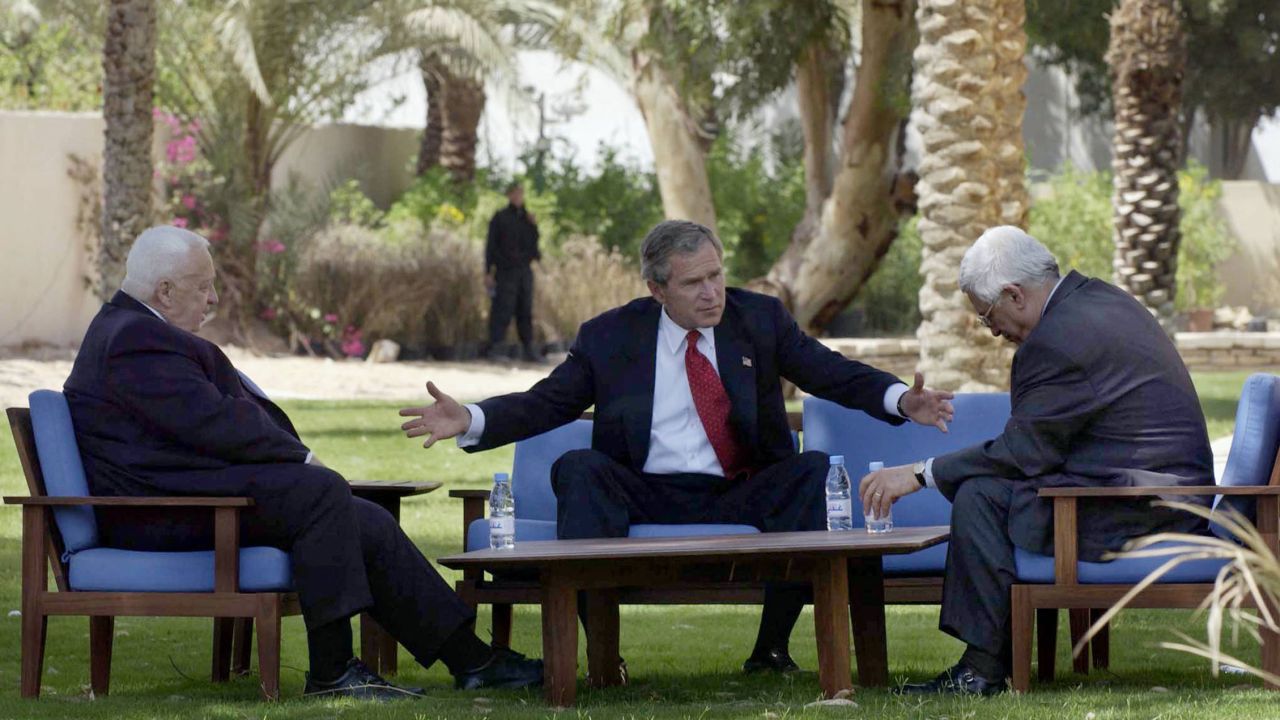
Bush, Sharon and Palestinian leader Mahmoud Abbas did agree to pursue the Roadmap for Peace, another attempt at pushing toward a two-state solution that ultimately failed but did see Israel remove its troops from Gaza. That was something Bush discussed with Sharon during a friendly meeting at his ranch in Crawford, Texas, although the men disagreed over the construction of West Bank settlements.
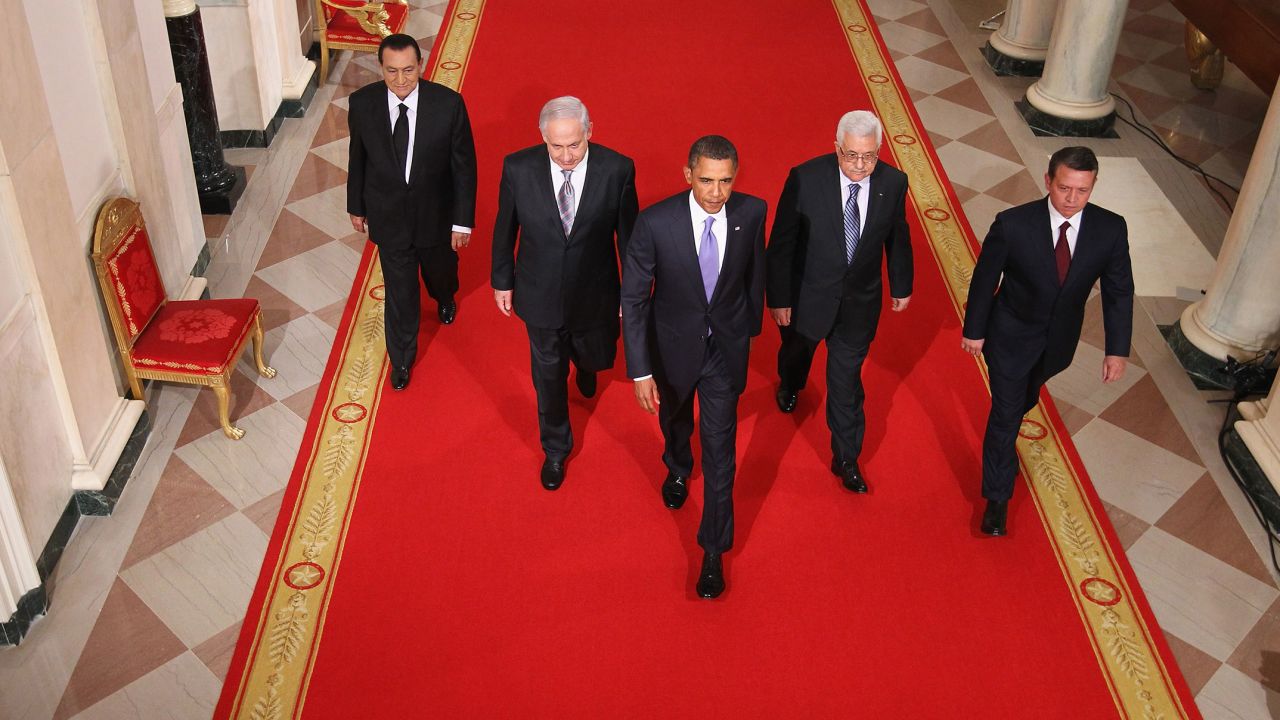
Obama tried to hit reset with the Middle East after the Bush years. He continued to support Israel, but he described Israel’s presence in the West Bank as an “occupation.” He was more forcefully opposed to the construction of new settlements in the West Bank. He engineered a summit between then-Israeli Prime Minister Benjamin Netanyahu and Abbas at the White House, but the effort ultimately failed. After Trump was elected, the US representative at the UN Security Council declined to veto a resolution condemning settlement construction.

Netanyahu rails against Iran nuclear deal – in 100 seconds
Obama and Biden negotiated with other world leaders to lift certain sanctions in exchange for Iran abandoning its pursuit of nuclear weapons. Netanyahu was so vehemently opposed that Republicans asked him in 2015 to address the US Congress in an attempt to stop it.
It was Trump, a vocal Netanyahu ally, who would ultimately end the Iran nuclear deal. Trump also effectively took Israel’s side in negotiations with Palestinians, moving the US Embassy to Jerusalem, a controversial decision, and endorsing the annexation of West Bank and East Jerusalem settlements into Israel.
“Trump really accelerates a shift and cements kind of the abandonment of a two-state solution,” Zelizer said, adding that Trump, now running again for the White House, has made support for Israel more political inside the US. “He is elevating this issue as a partisan issue, where presidents have really tried to avoid that.”
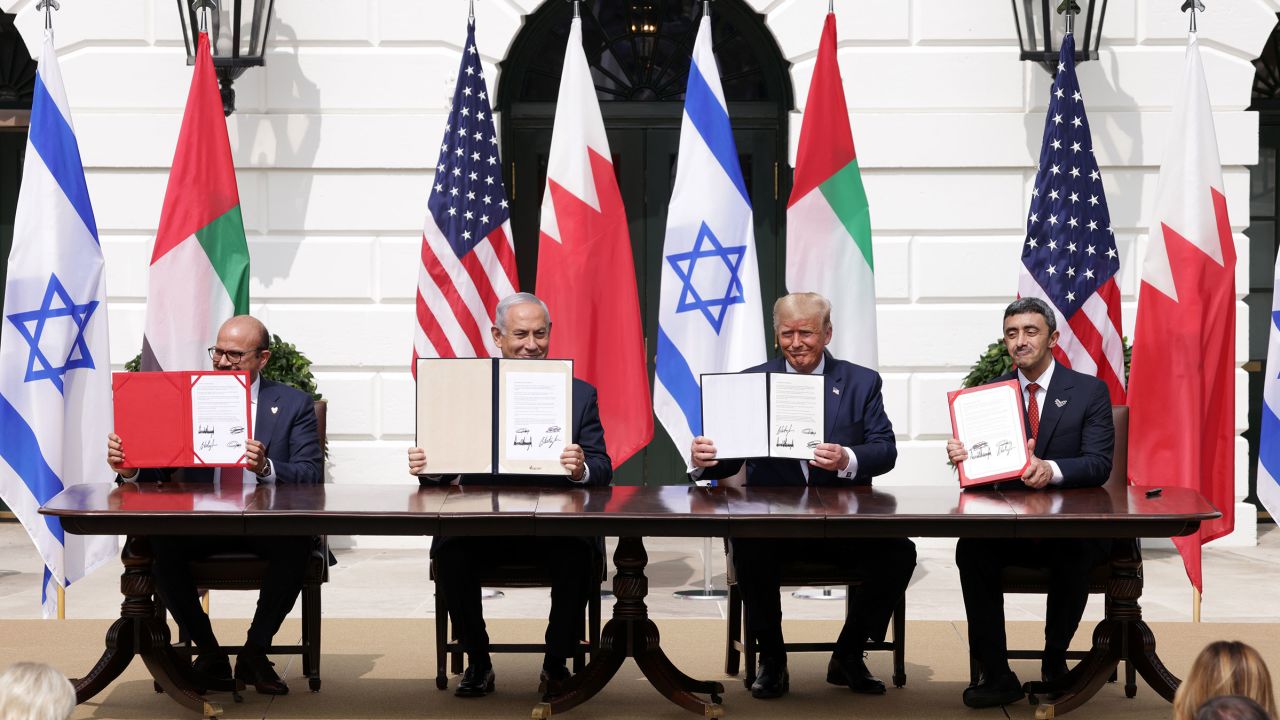
Arab nations including Bahrain and the UAE and later Morocco and Sudan recognized Israel. It was a major development, but one that did not address the problems of Palestinians, who lost leverage.
Biden, despite his differences from Trump, has not materially changed policy and indeed has pushed for Israel and Saudi Arabia to normalize their relations.
The future of further such peace efforts with Arab nations could now be in doubt as Israel continues to bomb the Gaza Strip in its effort to punish Hamas.
